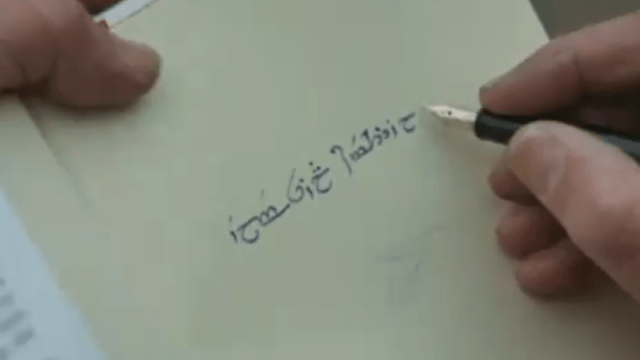If you’ve ever tried to tackle the monumental task of learning Quenya or Sindarin, then rejoice: The man who created them agrees with you that they’re bloody hard to get your head around. Yes, The Lord of the Rings author J.R.R. Tolkien never expected people to be able to speak Elvish fluently.
This morning the BBC’s Archive Twitter account — an endlessly fascinating source of old material — published an extract from an interview first released exactly 50 years ago today. It features Tolkien discussing his interest in building languages, and why he constructed fantastical languages for his work in The Hobbit and The Lord of the Rings.
It’s some wonderful, rare insight into Tolkien’s passion for linguistics (something he developed from an early age), and the clip even includes Tolkien himself writing a few phrases down in his famous elf-tongue:
#OnThisDay 1968 J. R. R. Tolkien (John to his mates) spoke about the use of his invented languages within ‘The Hobbit’ and ‘The Lord of the Rings’. pic.twitter.com/RfE2qKaq7A
— BBC Archive (@BBCArchive) March 30, 2018
It’s the last half a minute or so of the footage that’s the most interesting, though, as Tolkien reflects on the possibility of others picking up his languages:
I wouldn’t mind other people knowing it, and enjoying it, but I didn’t really want to — like some people who have been equally inventive in language have done — and sort of make cults and have people all speaking it together.
No, I don’t desire to go and have afternoons talking Elvish to chaps. For one thing, of course, Elvish is too complicated, I’ve never finished making it!
That’s not stopped thousands of people from trying ever since, Professor Tolkien!
